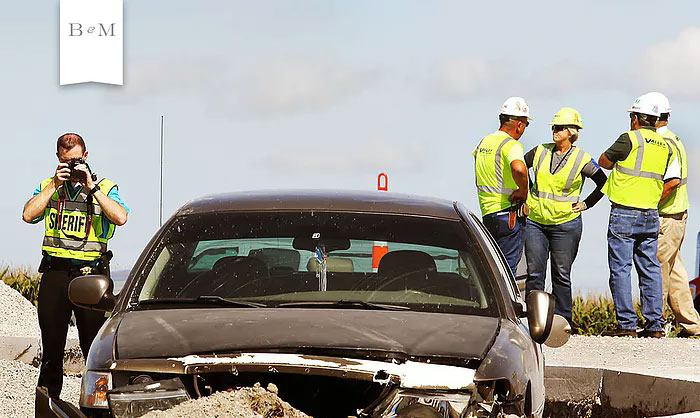Premises Line Rule Applied as an Exception to the Going-And-Coming Rule
Premises Line Rule Applied as an Exception to the Going-And-Coming Rule

In Schultz v. Workers’ Compensation Appeals Board, the California Court of Appeal, Second Appellate District, determined that the claimant was entitled to workers’ compensation benefits for injuries he sustained while driving to work in his personal vehicle.
Courts generally apply the “going-and-coming rule” to prohibit compensation to employees while driving their personal vehicles to and from an employer’s premises except where exceptional circumstances are present. The appellate court’s opinion stated that the claimant’s proof established an exception to the going-and-coming rule. The claimant’s evidence indicated that he was injured in the course of his employment, said the court, under an exception known as the “premises line rule” because he was driving on the employer’s premises for purposes of employment when the accident occurred.
BACKGROUND AND PROCEDURAL HISTORY
The claimant worked as a civilian employee at Edwards Air Force Base. He was severely injured in a single-vehicle traffic accident at the air base while driving to work in his own car.
He filed an application for workers’ compensation benefits. The workers’ compensation judge approved the application and issued an opinion recommending against the employer’s request for reconsideration.
The Workers’ Compensation Appeals Board reversed and issued a ruling denying benefits to the claimant, finding that the injuries were noncompensable under the going-and-coming rule.
The Court of Appeal, Second Appellate District, granted the claimant’s petition to review the case.
THE DECISION BY THE COURT OF APPEAL
The court of appeal stated that the going-and-coming rule generally prevents an employee from being eligible for workers’ compensation benefits while locally commuting to and from work at a “fixed place of business” during “fixed hours.” However, an employee’s ordinary course of employment commences after he or she enters the employer’s workplace. At that point, the premises line rule applies, said the court, and the going-and-coming rule no longer applies.
The court determined that the premises line rule applied in this case. The claimant was a civilian employee working on a military base that was not generally open to the public. He had driven on base in his personal vehicle after obtaining clearance through a guard gate. He gained access to the base using an Air Force-approved security pass that had been issued to him by his employer. He had driven one mile inside the base at the time of the accident. The evidence established the employer had multiple worksites on the base, and, although the claimant worked out of a fixed location, he sometimes drove in his own vehicle to work at other sites on the base when he was assigned to do so by his employer. Even though the accident occurred outside of work hours and before the claimant had started work while he was still several miles from the building where he was worked, the scene of the accident was located inside the base and, thus, was part of the employer’s premises.
CONTATCT AN ATTORNEY
Filing for workers’ compensation may often present thorny issues of both fact and law that are not immediately discernible to those not trained in the law. If you are injured at work and think that you may have a claim for workers’ compensation, you should seek out an attorney experienced in employment law and workers’ compensation claims and discuss what options you may have.


